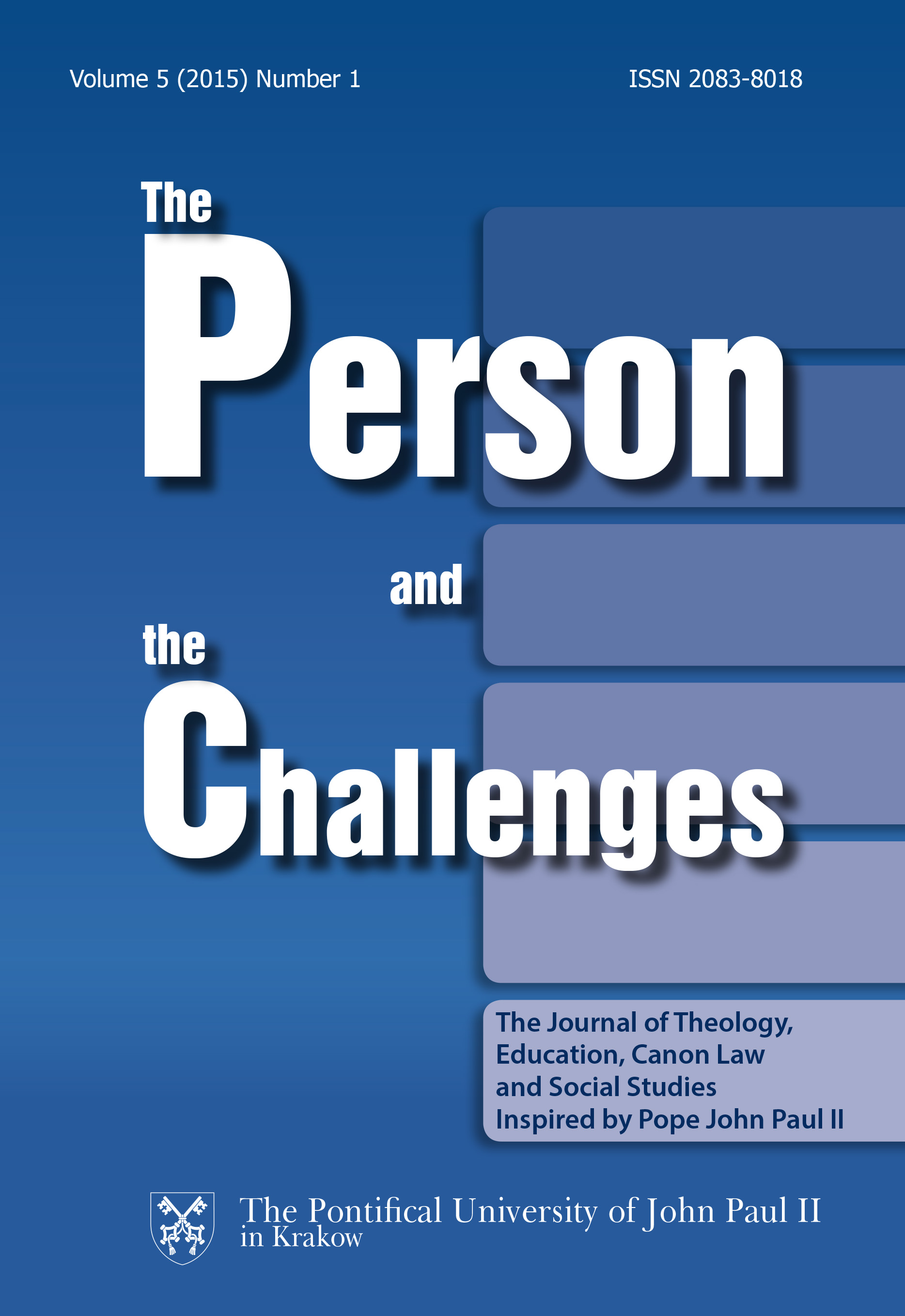Die Familie – Relikt der Vergangenheit oder Fundament der Zukunft?
DOI:
https://doi.org/10.15633/pch.929Słowa kluczowe:
Family, support, crisis, solidarity, future, John Paul IIAbstrakt
This article is a description of the current situation of the family from a Christian perspective and is divided into three chapters according to the method of the catholic social teaching: see judge, act. In the first part, a analysis of reality is presented, that is a sociological view of the situation of the family in the European countries. The outline of the situation of the family is shown in three dimensions (socio-cultural, political and economic). The second part briefly treats the Catholic teaching on the family, especially their social significance according to John Paul II.. The third part formulates practical conclusions to the question of what we can and should do to promote the family. It is the aim of Christian social ethics – as an instrument of evangelization - to draw adequate conclusions resulting in effective actions of Christians. It is about building bridges between theology and the challenges of the present. Without a doubt, the family is not just a relic of the past, as it was provocatively formulated in the title, but it is, and will continue to be, the foundation of the future.
Bibliografia
Groos M., Loichen T., Gerwing M. (Hg), Liebe, Leib und Leidenschaft. Zur Theologie des Leibes von Johannes Paul II., Medienverlag 2012.
Kaufmann F.-X., Die Krise der Kirche, Herder 2011.
Kuby G., Die globale sexuelle Revolution, Regensburg 2012.
Kues H., Arbeit und Familie, http://www.kas.de/upload/dokumente/2013/Zukunft_der_Arbeit/zukunft_der_arbeit_kues.pdf. (13.09.2013).
Luft S., Beiträge zu Migration und Politik, Nr. 1, Oktober 2007 http://www.stefanluft.de/beitraege_mp1.pdf (13.11.2013).
Mack E., Christliche Familienethik in einer Zeit gesellschaftlichen Wandels, „Theologie der Gegenwart“ 48 (1/2005).
Oberhuber N., Können wir uns ein drittes Kind noch leisten?, http://www.faz.net/aktuell/finanzen/meine-finanzen/familien/familienplanung-koennen-wir-uns-ein-drittes-kind-noch-leisten-12596305.html (01.10.2013).
Peeters M. A., Polityka globalistów przeciwko rodzinie, Warszawa 2013.
Roos L., Zwischen Hoffnung und Angst, „Die Neue Ordnung“ (2005) Nr. 6.
Spaemann R., Geleitwort, in: G. Kuby, Die globale sexuelle Revolution, Regensburg 2012.
Sutor B., Politische Ethik, Paderborn 1991.
Waleszczuk Z., Globalizacja solidarności, Wrocław 2007.
Wojtyła K., Liebe und Verantwortung. Eine ethische Studie, München 1981.
Wojtyła K., Osoba i czyn, Lublin 2000.
Pobrania
Opublikowane
Numer
Dział
Licencja
Prawa autorskie (c) 2015 Zbigniew Waleszczuk

Utwór dostępny jest na licencji Creative Commons Uznanie autorstwa 4.0 Międzynarodowe.
Autorzy publikujący w czasopiśmie udzielają jego wydawcy zgody o następującej treści:
- Autor zachowuje autorskie prawa majątkowe do utworu, a jednocześnie udziela wydawcy czasopisma zgody na jego pierwszą publikację w wersji drukowanej i wersji online na licencji Creative Commons Uznanie autorstwa 4.0 Międzynarodowe oraz zgody na wykonywanie opracowań, w tym przekładów.
- Autor ma możliwość udzielania zgody niewyłącznej na opublikowanie utworu w wersji, która ukazała się w czasopiśmie (np. zamieszczenia go w repozytorium instytucjonalnym lub opublikowania w książce), wraz z informacją o jego pierwszej publikacji w czasopiśmie.
- Autor może umieścić swój utwór online (np. w repozytorium instytucjonalnym lub na swojej stronie internetowej) jeszcze przed zgłoszeniem utworu do czasopisma.

